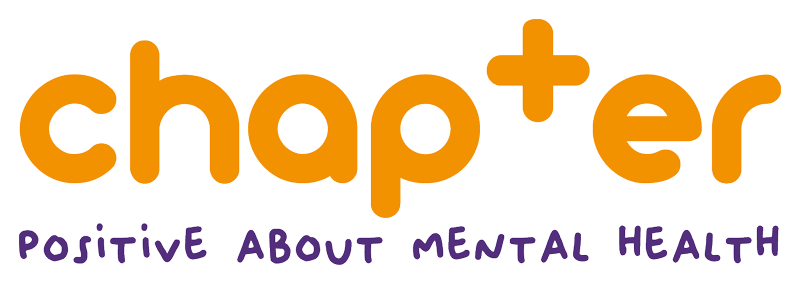This week is Children’s Mental Health Week and Chapter is proud to be involved with this campaign which seeks to create a future where every child’s wellbeing is properly supported.
With this year’s theme of Growing Together, we are sharing a few ways in which adults could help to support the wellbeing of children in their lives by being a good mental health role model.
Adults can not only encourage children to more forthcoming about their wellbeing by being a good mental health role model; they can also help to build positive routines that help children cope with stress, anxiety and depression.
Here are a few of Chapter’s top tips for being a good mental health role model:
1. Teach children healthy ways to cope with stress
There can be a lot of pressure on children and young people. Education, social lives and various other factors can contribute to them experiencing a great deal of stress.
According to the Children’s Commissioner, two thirds of young people feel stressed about homework and/or exams. 39% also said they experience stress due to worries about what other people think of them, whilst one quarter said bullying contributed to their stress.
At a young age, it is important that children and young people are taught healthy ways to cope with this. A good mental health role model should demonstrate how they can alleviate stress by making time for activities that bring them joy, for instance, or taking regular breaks from social media.
2. Talk about your own feelings
Unfortunately, there continues to be a stigma around talking about mental health, but we can all do our part in tackling this by simply expressing how we feel—when we are anxious, when we are stressed and particularly when we are feeling low.
Adults can be a good mental health role model to the children in their lives by discussing their own feelings openly and honestly. By doing this, children can see that it is OK to express how they feel too.
3. Regularly ask children about their feelings
It is important to give children the opportunity to talk about their feelings. Encouraging them to share their emotions and anxieties by frequently asking them how they are doing can help set a positive precedent, even if it does not look like children have something they need to talk about.
4. Listen carefully and without judgement
Ensuring that children know it is OK to talk about how they feel is one thing; making sure they are listened to and understood is another.
Whenever children or young people want to talk about their mental health or wellbeing, it is imperative that adults give them a safe space to share their emotions.
Adults should listen carefully to what children and young people have to say and avoid passing judgement on their feelings or experiences.
5. Encourage hobbies that will support wellbeing
Making time for things that bring you joy can be an enormous benefit to your mental health and wellbeing. Therefore, it is important that adults encourage and support children’s hobbies that achieve this. These hobbies can come in many forms, not just those which would be traditionally be seen as improving one’s wellbeing—it could be anything from music to playing video games.
6. Build positive routines into their day
Sleep, exercise and healthy eating have all been proven to have a positive impact on mental health and wellbeing. This is especially true among young people. In fact, children and young people who usually get less than the recommended 9 hours sleep on a school night, for instance, are more likely to feel anxiety at school, according to research by Place2Be.
Adults could attempt to build routines into children’s days to ensure that, amidst all the social and educational pressures they may be facing, they are engaging in activities that will have a positive impact on their wellbeing.
You can learn more about Children’s Mental Health Week here. You can also donate to Chapter and support our work inspiring people with mental ill-health, or learn more about the services we provide.

